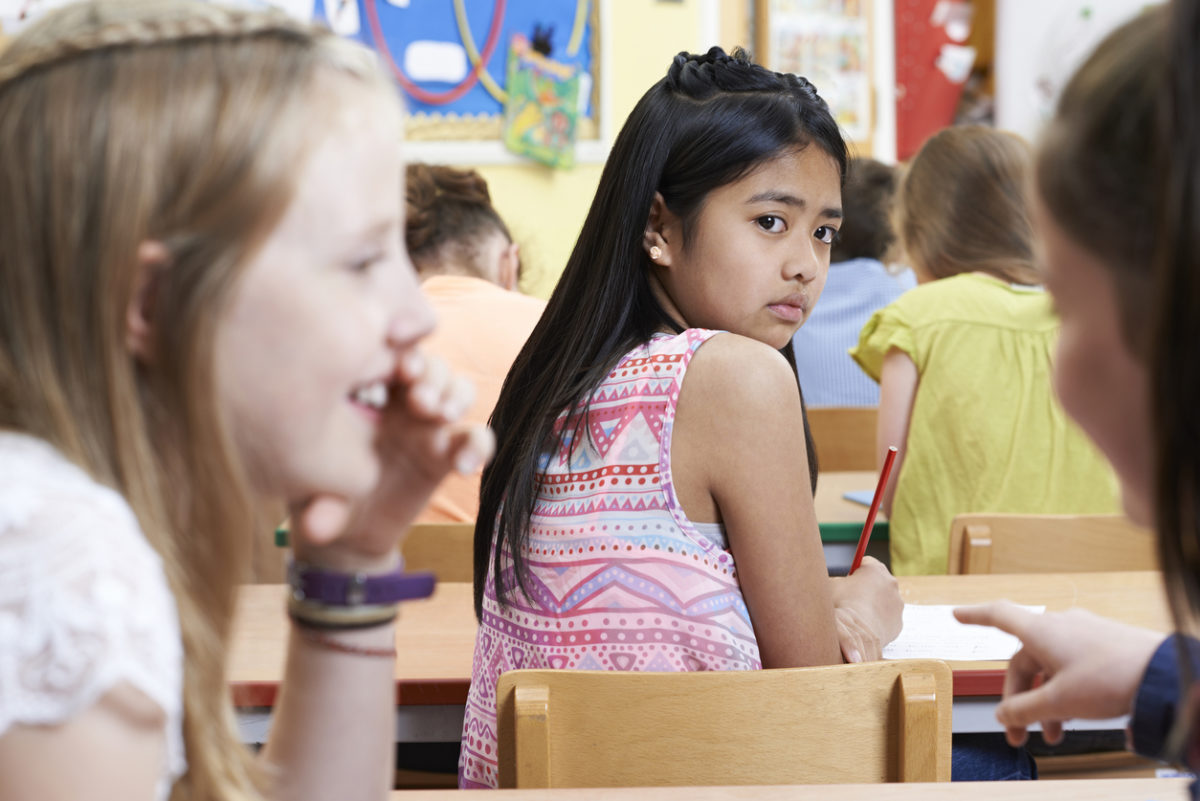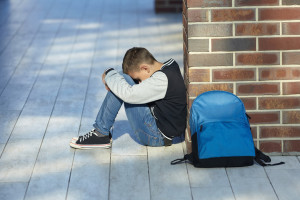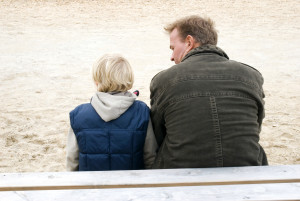
Bullying is one of the most serious problems in schools today. Over 13 million young American children will be bullied this year, making it the most common form of violence against young people in this country. It includes abuses that are physical and emotional, and with the Internet there exists a growing menace of cyberbullying on unsuspecting children.
160,000 children skip school every day because they fear being bullied. Children who are especially challenged are particularly targeted by bullies. The Autism Network has reported that 63 percent of autistic children have been bullied, three times more likely than children without this disorder. October is National Bullying Prevention Month, a time to raise awareness on bullying and what we can do to end it. One of the first steps to end bullying is to learn how to identify it.
Watch for signs of bullying
Bullying can occur in many different areas and situations. Most of the bullying in schools occurs in areas without adult supervision, like hallways, playgrounds, locker rooms, student restrooms, school bus or school cafeteria.
However, it can happen in some neighborhoods, too, with other children making threats to disadvantaged ones in situations ranging from sports to simple social interaction.
So, what are the signs your child is being bullied? Any child can have a bad day and lash out at another. However, it is a repeating pattern that you should be on the lookout for.
- Your child doesn’t want to go to school.
- He or she has unexpected physical scrapes, bruises, or cuts.
- There are missing items of clothing, books, toys or other possessions.
- Your child is afraid of riding on the school bus.
- He doesn’t want to be left alone.
- She becomes withdrawn or evasive.
- You see a marked change in personality or behavior, with your child becoming moody, anxious or depressed with no apparent reason; she may even talk about suicide.
- He frequently reports headaches or stomach aches or has to visit the nurse’s office quite often.
- He has trouble sleeping, has nightmares, wets the bed, or cries himself to sleep.
- She waits to go home to use the bathroom (school bathrooms can be a typical venue for bullying).
- She is hungry (possibly had lunch or lunch money stolen by bullies).
- There is a change in school grades (bullying can lead to loss of focus and concentration on studies).
- There is a diminished self-esteem. Your child feels she is not good enough, feels unimportant – may even want to run away.
- She feels she has no friends.
- He starts to bully younger siblings – which could be a sign of displaced anger and aggression and a possible “flipping” of victim to bully.
Kids may not ask for help
A report from the 2012 Indicators of School Crime and Safety revealed that adults were notified in less than half (40%) of bullying incidents. Children just don’t tell adults about being bullied for many reasons.
A parent may contact the bully’s parent with the result the bullied child is labeled a “tattletale” and will be subjected to further, and perhaps more serious bullying.
Some children don’t want their parents to know because the parents will think their children did something to cause whatever confrontation happened at school. Or the child may not want to be seen as weak and not able to stand up to the bullies.
The child may also not want his or her friends to know about being bullied because the friends may see the child as a liability who might get them in trouble, too, or they may at least distance themselves from the bullied child.
It is important for parents to understand that their bullied child will not necessarily come forward and report all situations of bullying. Parents have to look for signs and be in constant communication with teachers, coaches, other educators and other parents who are also looking for signs of bullying.
Kids who do ask for help may be ignored
As noted above, many children do not tell an adult, even their parents, when they have been bullied. They fear reprisals and loss of friendships. They fear their parents’ response that might be disappointment for not defending themselves or reprimanding them for “hanging out” with the wrong crowd.
In study groups, bullied children have reported that they did indeed tell their parents, but “were not believed.” The parents can’t imagine that other children would do such a thing. Or they may say the other children were just “fooling around” and meant no harm.
Some children just don’t have the emotional strength or maturity to tell their parents. They start to do it but get too embarrassed to follow through. Parents should recognize the attempt to talk to them and encourage their child to continue.
Other children who do tell their parents say that their dad makes things worse by yelling at the bully. Some others say their moms told them what to do but tried it and it didn’t work. So, they didn’t feel the need to tell her again.
If you sense your child is trying to tell you something, realize that it is important and give it your full attention. Turn off the TV and any other distractions. Your child needs your ear and your support, and maybe some sensible advice. It can be a critical moment in your child’s emotional growth. Don’t ignore it.
Parents should ask questions, too
You as a parent should be aware of all the possible signs of bullying. Once you know them, be on the lookout for them. If you see any, you may want to follow up with your child with some non-threatening questions to probe for the truth, knowing your child may not want to volunteer the information.
What kinds of questions should you ask? If your child seems hungry after school, you should ask if he has been eating his lunch. If he did eat lunch but still wants food, it could be a sign of anxiety. Ask him if there is anything wrong and if he feels he can talk about it.
If your child is missing something, like CDs or a lunchbox, ask directly if someone took it from her. Some children won’t tell you unless you ask.
If your child’s jacket is ripped, ask if someone else did that. Don’t blame your child for the incident. Have a calm conversation that could lead to follow-up discussion with a teacher or other parent.
When your child does tell you about one of these bullying situations, be sure to thank him or her for their honesty and courage to tell you. Convey the message that honesty is necessary to maintain a bond of trust in a family. Reinforce that bond by being honest with your child, too.
If you ask questions but don’t get answers, your child’s aversion and silence may be telling you a lot. Watch the body language for more clues.
If you sense there is something going on, plan to meet with a teacher or school official who knows your child, possibly more than one teacher. If you think it is a neighborhood situation, talk with other parents you know. Or possibly coaches if athletics were involved. A little detective work on the side and done with discretion, can go a long way to getting the answers your child is avoiding.
Another bit of detective work is to talk with a classmate or friend of your child. Maybe that child can tell you more than your own child about what happened.
There is a lot that parents, teachers, school counselors, coaches and even other students can do to stop bullying. Watch for the signs, and be prepared to talk with your child and take whatever next steps might be needed.






